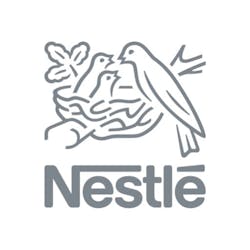Nestlé Outlines Future Value Creation Model Including Strategic Growth Priorities And Supporting Capital Structure
Nestlé outlines future value creation model including strategic growth priorities and supporting capital structure
Company advancing value creation model based on profitable growth, margin improvement and capital efficiency
Nestlé today announced another step forward in the implementation of its comprehensive value creation model. Early in 2017, the company's management, together with the Nestlé Board of Directors, initiated a comprehensive review of the company's capital structure and priorities to support and enhance its ability to deliver on its value creation model. Nestlé regularly revisits its capital structure to reflect changing market conditions and strategic priorities. Nestlé's financial strategy aims at striking the right balance between growth in earnings per share, competitive shareholder returns, flexibility for external growth and access to financial markets.
As a result of this review, Nestlé determined that capital spending will be focused particularly on advancing high-growth food and beverage categories such as coffee, petcare, infant nutrition and bottled water, as well as expanding its presence in high-growth geographic markets. In line with the company's nutrition, health and wellness strategy, it will also pursue growth opportunities in consumer healthcare. Consistent with a disciplined approach to acquisitions, Nestlé will only prioritize external growth opportunities that fit within targeted categories and geographies, deliver attractive returns, and build on the company's leadership position in fast growing food and beverage categories.
Nestlé's recent announcement that it would explore strategic options for its US confectionery business is consistent with this overall approach. The company will continue to adjust its portfolio in line with its strategy and growth objectives.
Nestlé will also continue to assess opportunities for margin improvement through targeted efficiency programs that do not undermine the company's performance in attractive long-term growth categories.
In the context of low interest rates and strong cash flow generation, share buybacks offer a viable option to create shareholder value. Therefore, as a result of its review, the Board of Directors approved a share buyback program of up to CHF 20 billion, to be completed by the end of June 2020. Should any sizeable acquisitions take place during this period, the share buyback program will be adapted accordingly.
The program is scheduled to start on 4 July 2017. The volume of monthly share buybacks will depend on market conditions but is likely to be backloaded in 2019 and 2020 to allow the pursuit of value-creating acquisition opportunities. Based on current projections, the company expects a net debt to EBITDA ratio of circa 1.5 in 2020.
The company is committed to maintaining its sustainable dividend practice.
